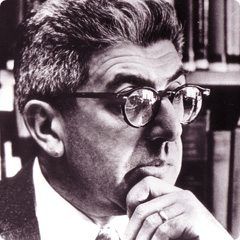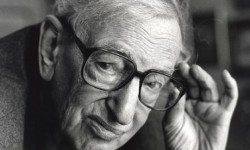Culture & Media
Remembering Barry Commoner and Eric Hobsbawm

Two legendary figures — environmental scientist and activist Barry Commoner and historian Eric Hobsbawm — died on Sunday, both at the age of 95. Both changed the way we view the world. Both influenced scholars and activists alike.
Barry Commoner: I posted a tribute to Commoner on the Huffington Post and The Nation. He followed Rachel Carson as America’s most prominent modern environmentalist. He viewed the environmental crisis as a symptom of a fundamentally flawed economic and social system. A biologist and research scientist, he argued in his best-selling books and many articles that corporate greed, misguided government priorities, and the misuse of technology undermined “the finely sculptured fit between life and its surroundings.” He insisted that scientists had an obligation to make scientific information accessible to the general public, so that citizens could participate in public debates that involved scientific questions. Citizens, he said, have a right to know the health hazards of the consumer products and technologies used in everyday life. Those were radical ideas in the 1950s and 1960s, when most Americans were still mesmerized by the cult of scientific expertise and such new technologies as cars, plastics, chemical sprays, and atomic energy. Commoner linked environmental issues to a broader vision of social and economic justice. He called attention to the parallels among the environmental, civil rights, labor, and peace movements. He connected the environmental crisis to the problems of poverty, injustice, racism, public health, national security, and war.
Eric Hobsbawm: Hobsbawm was a great historian and wonderful wordsmith who, like Howard Zinn, looked at history from the “bottom up.” I read one of his early books, Primitive Rebels, in college, which revealed how everyday acts of resistance can lay the groundwork for broader political movements. His sweeping studies of world history — The Age of Revolution: Europe 1789-1848, The Age of Capital: 1848-1875, The Age of Empire: 1875-1914 and The Age of Extremes: The Short 20th Century,1914-1991 — were brilliantly mind-boggling. His writing was somewhat tainted by his Communist Party ties, which he maintained into his later years, but he was nevertheless an influential scholar who examined the impact of class and culture on history. He also wrote widely and insightfully about jazz, a lifelong love. Obituaries in the Washington Post, the UK Guardian, and the Financial Times, don’t do justice to his work and influence.



